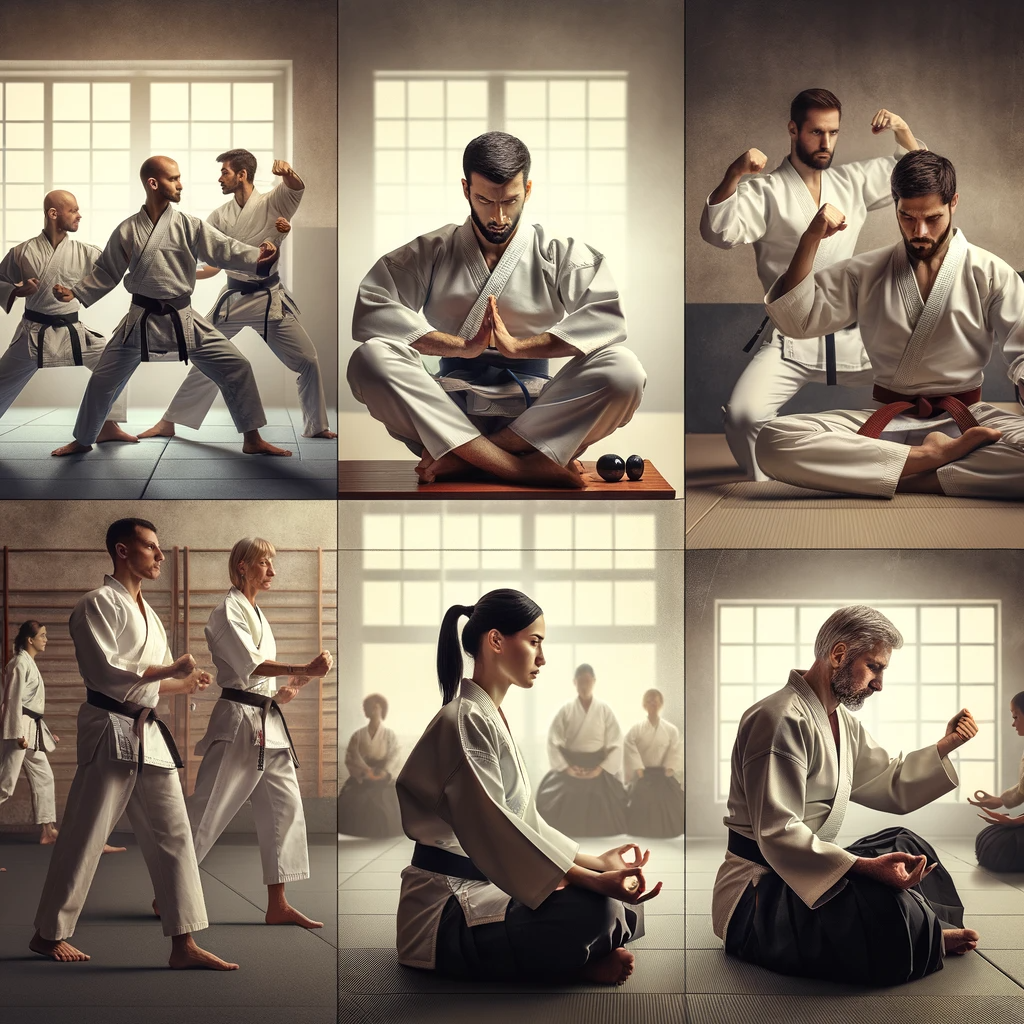
Beyond Combat: What Does Martial Arts Teach You?
Posted: January 04, 2024
Martial arts, often seen merely as systems of combat and self-defense, are indeed much more. They are complex disciplines that impart a wide range of valuable life skills and lessons. So, what does martial arts teach you? The lessons extend far beyond the dojo — impacting practitioners' physical fitness, mental well-being, and overall approach to life.
1. Physical Health and Fitness
At the most fundamental level, martial arts are an excellent way to stay physically fit. They improve cardiovascular health, increase strength and flexibility, and develop core stability and balance. Regular practice tones the body, enhances physical capabilities, and promotes a healthy lifestyle.
2. Mental Fortitude and Focus
Martial arts require a high level of concentration and mental engagement. Practitioners learn to clear their minds, focus on the task at hand, and push through difficulties. This training enhances mental fortitude, allowing individuals to develop sharp focus, resilience, and the ability to remain calm under pressure.
3. Discipline and Dedication
One of the most significant lessons martial arts teach is discipline. The rigorous training regimen demands consistency, perseverance, and hard work. Students learn the value of regular practice and dedication as they advance through ranks and master new techniques. This discipline often translates into other areas of life, helping individuals succeed in their professional and personal endeavors.
4. Respect and Humility
Respect is a cornerstone of martial arts philosophy. Students learn to respect their instructors, fellow practitioners, and opponents. They also learn to respect themselves — their bodies, their minds, and their journey. This deep-seated respect fosters humility, a critical quality in martial arts and everyday life.
5. Self-Defense and Safety Awareness
While not the primary focus for many practitioners, martial arts are effective for self-defense. They teach individuals to defend themselves and their loved ones, enhancing personal safety and confidence. More importantly, they promote awareness of one's surroundings, understanding of potential threats, and the importance of avoiding conflict whenever possible.
6. Emotional Balance and Stress Relief
Martial arts provide a constructive outlet for stress and negative emotions. The physical exertion coupled with the mental focus required acts as a form of moving meditation, helping practitioners achieve emotional balance and peace of mind. Regular practice has been shown to reduce stress, alleviate anxiety, and boost overall mood.
7. Social Interaction and Community
Joining a martial arts class introduces individuals to a community of like-minded people. It's an opportunity to form new friendships, learn from others, and share experiences. The supportive and positive environment found in most dojos encourages social interaction and helps build a strong community network.
8. Continuous Learning and Self-Improvement
Martial arts are about continuous learning and self-improvement. There's always a new technique to master, a higher rank to achieve, or a personal goal to reach. This journey fosters a love for learning and growth, encouraging practitioners to strive for excellence in all areas of life.
In conclusion, martial arts teach much more than kicks and punches. They are a holistic system of personal development, providing lessons in physical health, mental strength, discipline, respect, self-defense, emotional well-being, social interaction, and continuous learning. Whether you're looking to improve your fitness, gain a new skill, or simply find a new hobby, martial arts offer a rich and rewarding experience that extends well beyond the dojo.
